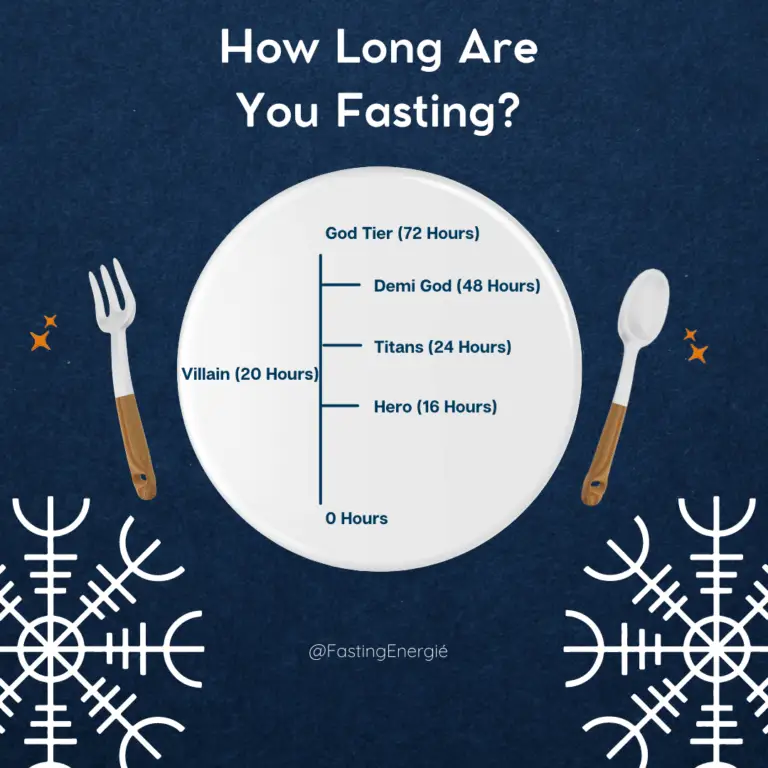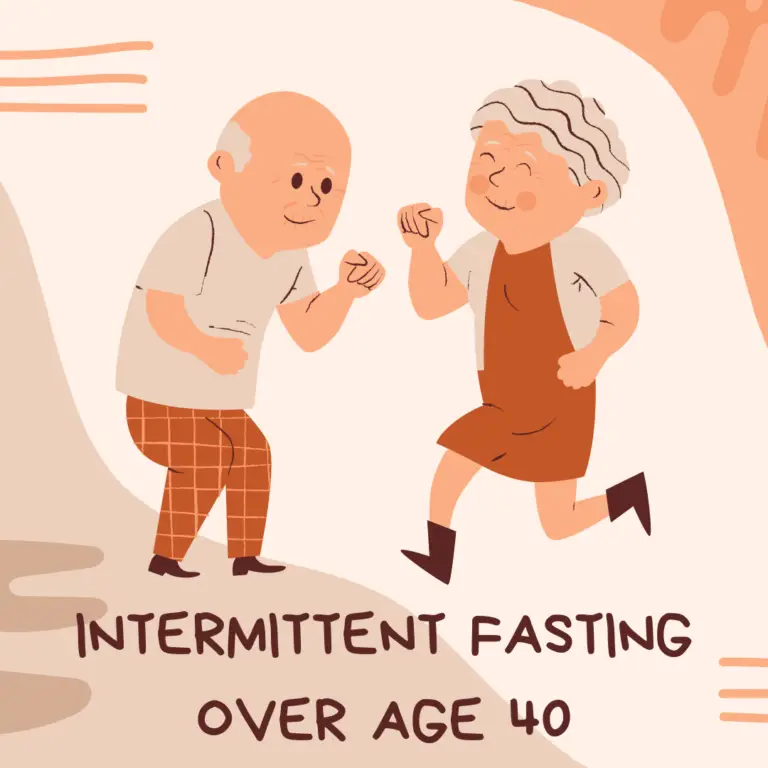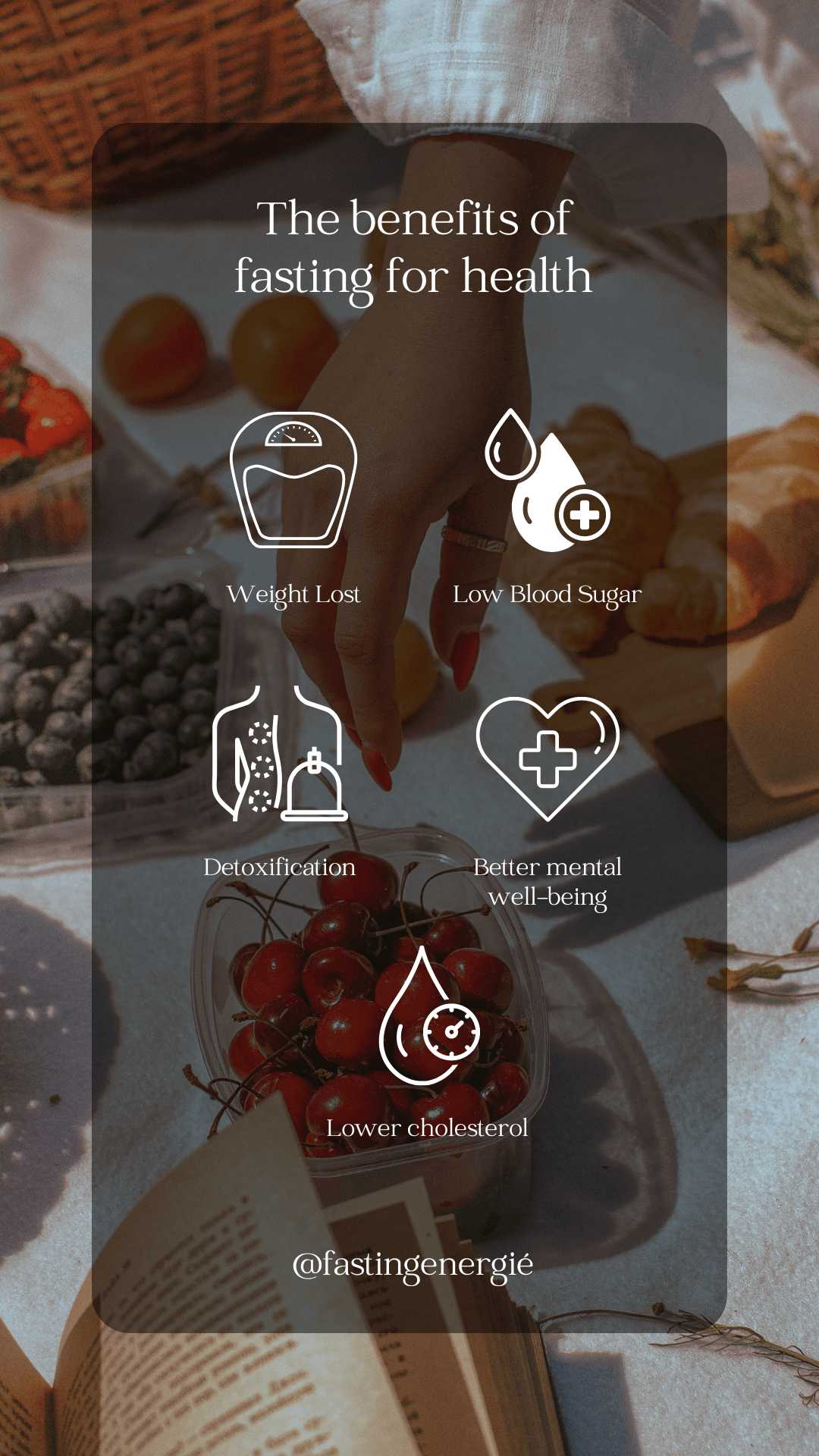Can Intermittent Fasting Reverse Diabetes? What the Experts Aren’t Telling You!
Table of Contents

Introduction:
An overview of diabetes and its global impact
Diabetes is a huge global health concern that affects millions of individuals globally. It is defined by the body’s inability to create or adequately utilise insulin, a hormone that regulates blood sugar levels. Diabetes is classified into two types: Type 1, in which the body does not create enough insulin, and Type 2, in which the body is unable to effectively use the insulin it does produce.
Diabetes prevalence has continuously increased, owing primarily to rising obesity rates, an ageing population, and lifestyle factors. Diabetes can cause serious complications if not effectively controlled, such as cardiovascular disease, nerve damage, kidney failure, and visual difficulties, making it a major contributor to global mortality and morbidity rates.
The Emergence of Intermittent Fasting as a Therapeutic Strategy
Can Intermittent Fasting Reverse Diabetes?, Intermittent fasting has grown in favour in recent years, not just as a weight management approach, but also as a potential treatment for diabetes. This dietary regimen varies in style, including daily fasting periods or fasting on alternate days, and has been linked to significant improvements in several metabolic health markers.
Intermittent fasting is expected to help manage weight, improve insulin sensitivity, and lower blood sugar levels, all of which are useful for diabetes treatment. The expanding quantity of studies into its efficacy suggests that it could be a feasible supplemental therapy or preventive method for diabetic patients.
Understanding Diabetes
- Type 1 diabetes is an autoimmune disorder in which the immune system assaults insulin-producing cells in the pancreas, resulting in low or no insulin production. It is commonly diagnosed in youngsters and young adults, necessitating lifelong insulin therapy.
- Type 2 Diabetes is significantly more frequent and often develops in adults over the age of 45, however it is increasingly occurring in younger age groups such as children, adolescents, and young adults. This kind is primarily connected with obesity and lifestyle factors, and it is distinguished by insulin resistance and, eventually, reduced insulin production.
Key Mechanism: Insulin Resistance and Pancreatic Function
- Insulin Resistance In type 2 diabetes, cells do not respond normally to insulin. Insulin resistance causes the pancreas to create more insulin in order to maintain normal blood sugar levels, but over time, this can strain the pancreas and weaken its ability to produce insulin.
- Pancreatic Function: Both kinds of diabetes rely heavily on pancreatic function. For Type 1, the focus is on the autoimmune death of insulin-producing beta cells. Type 2 diabetes frequently begins with the pancreas overworking due to insulin resistance in the body, eventually leading to the loss of insulin production.
Scientific Basis of Intermittent Fasting and Diabetes
How Intermittent Fasting Affects Insulin Sensitivity
Intermittent fasting influences insulin sensitivity in several beneficial ways. By alternating between periods of eating and fasting, the body learns to use the insulin it produces more efficiently. During fasting periods, insulin levels drop significantly, which encourages the body to burn stored fat for energy instead of sugar. This reduction in circulating insulin levels improves insulin sensitivity over time, as the body’s cells respond more readily to insulin during the eating phases.
Impact on Blood Sugar Levels and Pancreatic Health
Intermittent fasting can also positively impact blood sugar levels and the health of the pancreas:
- Blood Sugar Levels: By enhancing insulin sensitivity and reducing insulin resistance, intermittent fasting helps lower and stabilize blood sugar levels. Fasting periods help regulate blood sugar by reducing the frequency of spikes and dips, which is especially beneficial for people with type 2 diabetes.
- Pancreatic Health: Reducing the demand on the pancreas to constantly produce insulin, especially in individuals with insulin resistance, can give the pancreas a much-needed rest. Over time, this can help preserve the function of beta-cells in the pancreas that produce insulin, potentially delaying the progression of type 2 diabetes.
Expert Opinions on Intermittent Fasting and Diabetes
Advice from Endocrinologists and Nutritionists
Endocrinologists and nutritionists are increasingly looking into the effects of intermittent fasting on diabetes management, providing significant insights based on clinical experience and continuing research:
- Effectiveness in Blood Sugar Control: According to several health specialists, intermittent fasting can be useful in reducing blood sugar levels in type 2 diabetic patients. Fasting periods help to reduce overall glucose load and enhance insulin sensitivity, both of which are important for diabetes management.
- Improved Insulin Sensitivity: Endocrinologists frequently point out that intermittent fasting helps to lower insulin resistance, which is a major factor in type 2 diabetes. Fasting can assist boost the effectiveness of the body’s natural insulin by allowing it to rest from producing it.
- Cautions and Recommendations: While experts believe intermittent fasting has potential, they caution that it is not for everyone. People with type 1 diabetes, for example, must exercise extreme caution when fasting due to the risk of hypoglycemia. Nutritionists emphasise the need of individual assessment and frequently urge a monitored start to any fasting regimen, especially for patients who are taking insulin or other diabetes drugs that raise the risk of hypoglycemia.
A review of recent studies and clinical trials
Recent scientific investigations and clinical trials have given empirical evidence to the benefits of intermittent fasting for diabetes:
- 2017 Study: A 2017 study published in the journal “Cell Metabolism” found that intermittent fasting can dramatically enhance insulin sensitivity and blood sugar control. The study found that patients with type 2 diabetes who followed an intermittent fasting strategy for several months had improvements.
- 2020 Clinical experiment: A clinical experiment done in 2020 discovered that intermittent fasting not only helped participants lose weight, but it also improved blood sugar control and reduced their need for diabetes medication.
- Meta-Analysis: Several meta-analyses have found that intermittent fasting is an effective non-medical therapy for improving glucose control and insulin sensitivity in patients with type 2 diabetes.
Potential Risks and Challenges.
Considerations for Individuals with Type 1 Diabetes
Intermittent fasting presents unique issues for those with Type 1 diabetes, owing to the inherent dangers connected with insulin regulation:
- Danger of Hypoglycemia: The most serious danger for people with Type 1 diabetes is hypoglycemia, which can occur if insulin levels are not carefully controlled during fasting times. Miscalculations can result in dangerously low blood sugar levels because insulin is still needed to maintain blood sugar levels even when fasting.
- Ketoacidosis: Fasting increases the risk of ketoacidosis, a dangerous illness in which the body produces high levels of blood acids known as ketones. This can be life-threatening and must be closely monitored.
- Medical Supervision: When attempting any type of fasting, patients with Type 1 diabetes should consult with healthcare providers and, if necessary, have medical supervision. Adjustments to medications and strict blood sugar monitoring are required.
Common Pitfalls and How to Avoid Them
- Dehydration and Electrolyte Imbalance: Fasting can cause dehydration and a decrease in electrolytes, which are essential for bodily activities. Maintaining fluid intake is critical, and electrolyte supplements may be required.
- Overeating During Eating Windows: People tend to overeat during non-fasting periods, which might undermine the benefits of fasting. It is critical to focus on balanced, nutritious meals during eating windows.
- Inadequate Nutrition: Long fasting periods can result in nutritional deficits, especially if the non-fasting diet is unbalanced. A diet rich in vitamins, minerals, and other nutrients is critical.
Guidelines for Implementing Intermittent Fasting Safely with Diabetes
Preparing for Intermittent Fasting: Steps to Follow
For diabetics considering intermittent fasting, preparation is critical to guarantee safety and effectiveness.
- Consult a Healthcare Provider: Before beginning any fasting regimen, you should visit with a healthcare physician, preferably one who is knowledgeable with your medical history and current health. They can assist you determine the feasibility and safety of fasting based on your individual circumstances.
- Adjust Medication: To avoid hypoglycemia or other issues during fasting periods, persons using diabetes drugs, particularly insulin, may need to make changes.
- Nutritional Counselling: Consult a nutritionist to ensure that your eating intervals are nutritionally balanced, supporting general health and properly managing blood glucose levels.
Monitoring and Adjusting Your Approach
- Regular Blood Glucose Monitoring: Frequent monitoring is essential, especially for beginners. This will help you understand how your body reacts to fasting and whether your current diabetes management strategy requires changes.
- Adjust as Needed: Depending on your monitoring findings, you may need to change the length of your fasting intervals, the timing of your medicine, or the composition of your meals.
- Continuous Feedback Loop: Regular check-ins with your healthcare practitioner are required to discuss your progress and make any necessary changes to your treatment plan.
What Experts aren’t Telling You
Underreported Study Findings
While many research emphasise the benefits of intermittent fasting for controlling diabetes, some outcomes receive less attention:
- Variability in Response: Studies demonstrate that people with diabetes respond differently to intermittent fasting. Some see major increases in insulin sensitivity and weight loss, while others notice just minor changes.
- Rebound Hyperglycemia: According to some research, intermittent fasting might cause rebound hyperglycemia, which is a sudden rise in blood sugar following a fasting period. This phenomena is notably underreported and poorly understood in the context of long-term health consequences.
- Long-term Efficacy: The long-term viability and efficacy of intermittent fasting as a diabetes management method are still debatable, with few long-term research available to provide a definitive answer.
Controversies and Debates within the Medical Community
Intermittent fasting, particularly for diabetes control, is still debated.
- Safety Concerns: There is ongoing discussion concerning the safety of intermittent fasting for persons with type 1 diabetes and severe type 2 diabetes who require insulin. Concerns centre on the hazards of hypoglycemia and ketoacidosis.
- Standard Medical Practice Vs Alternative Approaches: Intermittent fasting calls into question established diabetic dietary recommendations, which typically require eating carbohydrates on a regular basis to control blood sugar. This has prompted a controversy between supporters of traditional dietary recommendations and those arguing for novel, potentially disruptive alternatives such as fasting.
- Regulation of Fasting Practices: There is also discussion about how to regulate and guide fasting practices in clinical settings to ensure patient safety and efficacy, given the lack of standardised guidelines.
Conclusion
Recap of Intermittent Fasting’s Potential to Reverse Diabetes
Intermittent fasting has considerable potential as a reversal approach for diabetes, particularly type 2, because it improves insulin sensitivity, promotes significant weight loss, and overall metabolic health. However, the response might be extremely personalised, thus the strategy must be carefully designed and evaluated.
Final Thoughts and Recommendations for Future Research
- Personalised Approaches: Determine which patient subsets benefit from intermittent fasting and follow customised procedures.
- Long-term Studies: Long-term studies are crucial for better understanding the long-term impact of intermittent fasting on diabetes control.
- Comparative Studies: Additional research comparing intermittent fasting to other dietary treatments may shed light on its relative advantages and hazards.
These areas of study may assist to explain the role of intermittent fasting in diabetes care and ensure that patients receive evidence-based advice that maximise benefits while minimising dangers.
Frequently Asked Questions
u003cstrongu003eHow long does it take to reverse insulin resistance with intermittent fasting?u003c/strongu003e
The time it takes to reverse insulin resistance through intermittent fasting can vary significantly depending on several factors, including the severity of insulin resistance, the specific fasting regimen adopted, and individual metabolic health. Some people may see improvements in insulin sensitivity within a few weeks, while for others, it may take several months of consistent fasting to observe noticeable changes.
u003cstrongu003eCan fasting reset your blood sugar?u003c/strongu003e
Yes, fasting can help to “reset” your blood sugar levels. By abstaining from food for extended periods, intermittent fasting reduces the constant exposure to dietary sugars and carbohydrates, which can help regulate blood sugar levels. This reset mechanism is particularly beneficial for preventing and managing blood sugar spikes and can be a valuable tool in diabetes management.
u003cstrongu003eDoes fasting get rid of sugar in your body?u003c/strongu003e
Fasting significantly reduces sugar levels in the blood, but it does not completely eliminate sugar from the body. During fasting, the body first uses sugar stored in the liver in the form of glycogen. Once glycogen stores are depleted, typically 24 to 48 hours into the fast, the body begins to break down fat for energy in a process called ketogenesis. While fasting does help lower and manage blood sugar levels, some glucose will always be present in the body, as it is critical for the functioning of certain organs, such as the brain.
u003cstrongu003eWhy do I have high blood sugar after fasting for 16 hours?u003c/strongu003e
Having high blood sugar after fasting can be startling, but it is a well-known phenomenon known as the “dawn effect” or “liver dump,” in which the liver releases glucose into the bloodstream. This can occur as a natural reaction to low insulin levels and the body’s desire to sustain energy. Non-diabetics usually recover fast after they resume eating, while diabetics may need more cautious control.
u003cstrongu003eDoes fasting for too long raise blood sugar?u003c/strongu003e
Yes, fasting for too long can paradoxically raise blood sugar levels, particularly in diabetics. This is due to the same physiological principles that underpin the dawn effect. As the body continues to fast, stress chemicals such as cortisol and growth hormone may increase, thereby raising blood sugar. Diabetics, particularly those with Type 1 diabetes or insulin-dependent Type 2 diabetes, may experience major changes that necessitate careful monitoring and modification of insulin doses.
u003cstrongu003eCan intermittent fasting reverse prediabetes?u003c/strongu003e
Intermittent fasting has showed promise in reversing prediabetes by enhancing insulin sensitivity and weight loss. These adjustments can help manage blood glucose levels more efficiently, potentially restoring them to non-prediabetic levels. Individual results may vary, and lifestyle adjustments should be maintained over time.
u003cstrongu003eHow long should I fast to reverse type 2 diabetes?u003c/strongu003e
There is no one-size-fits-all solution, as the efficiency of intermittent fasting varies substantially between individuals. According to several studies, periods of 16 to 24 hours can be useful when performed consistently over several months. However, the overall time and frequency should be customised to the individual’s health situation and medical supervision.
u003cstrongu003eShould diabetics practise intermittent fasting?u003c/strongu003e
Diabetics can try intermittent fasting, but it requires careful planning and monitoring, especially for those taking insulin or other glucose-lowering drugs. Consultation with healthcare specialists is vital for ensuring safe practice.
u003cstrongu003eCan a diabetic endure an entire day without eating?u003c/strongu003e
While some diabetics can maintain an all-day fast, it poses considerable hazards, particularly for individuals with type 1 diabetes or who require insulin. Such fasting should only be done under medical supervision.
u003cstrongu003eWhat is the ideal fasting method for type 2 diabetes?u003c/strongu003e
The optimal fasting strategy varies, however many people find that shorter daily fasts, such as the 16:8 method (fasting for 16 hours and eating during an 8-hour window), are successful and sustainable. This strategy reduces the danger of significant blood glucose variations and allows for frequent review of meal intake and medication requirements.
u003cstrongu003eCan fasting treat type 2 diabetes?u003c/strongu003e
While fasting cannot “fix” type 2 diabetes, it can be an effective technique for managing and perhaps reversing the disease’s consequences. Intermittent fasting can improve body composition, increase insulin sensitivity, and lead to significant weight loss, all of which can aid with disease management. Diabetes, on the other hand, is a chronic condition that requires thorough management, taking into account all medical and lifestyle aspects.While fasting cannot “fix” type 2 diabetes, it can be an effective technique for managing and perhaps reversing the disease’s consequences. Intermittent fasting can improve body composition, increase insulin sensitivity, and lead to significant weight loss, all of which can aid with disease management. Diabetes, on the other hand, is a chronic condition that requires thorough management, taking into account all medical and lifestyle aspects.







